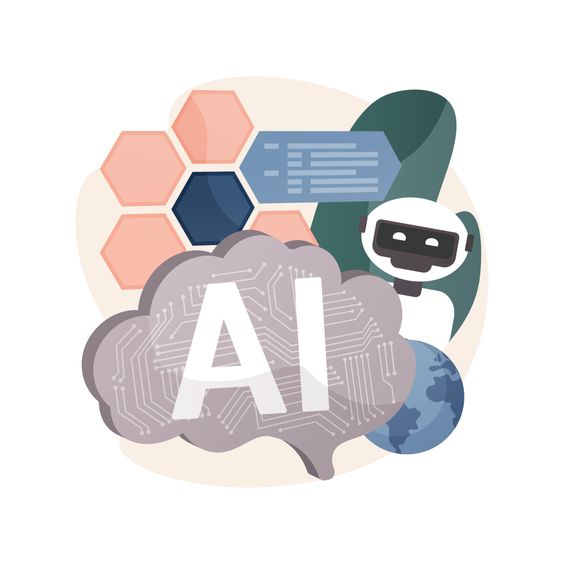What Skill Is Needed for Marketers to Effectively Use AI?
Gaining proficiency in Artificial Intelligence (AI) is imperative in the swiftly evolving marketing field. Companies are already using AI to increase productivity and gain new insights. In order to fully utilize AI, marketers need to arm themselves with the necessary competencies.
For marketers, AI is both exciting and worrisome. Digital marketing has already benefited from it by offering customer insights, personalizing campaigns, and automating tasks. But there are drawbacks to AI as well, like job displacement, ethical issues, and security threats.
Today’s blog post from BLDSindia will cover the abilities that marketers need to develop in order to collaborate with AI, either to support it or to bridge the gaps it can’t.
8 Important Skills for Marketers in the AI Age
These eight crucial competencies will help marketers succeed in the AI era.
1. Producing and creating content
AI can support the production of content. It can help with keyword research, content brainstorming, and even getting your blog’s introduction off to a good start. Additionally, it can produce content for laborious jobs, freeing you up to work on enjoyable and creative projects.
By 2024, generative AI technologies should be able to help you with a number of tasks, such as:
- Writing a blog
- Idea generation for content
- Email promotion
- Image production
- Writing for Sales
- Marketing on social media
- Creation of videos
For social media content optimization, you must integrate AI into your content creation process and strategy. The advantages of AI increase with your understanding of it. Being well-versed in AI will also help you remain competitive when applying for jobs and getting promoted.
2. Analyzing data
Making data-driven decisions and gaining insights from data is a goal shared by many businesses. Over 80% of marketing executives say they need help making these kinds of decisions, and 84% of them acknowledge that forecasting customer behavior is like guesswork. This information comes from a Pecan AI report.
With the help of AI technology, you can analyze data from a variety of sources, not just GA4, including social media posts, forums, and reviews, to gain insight into what your customers are saying. Text analytics can provide insight into the opinions, arguments, and conversational patterns of consumers.
You must constantly hone your data analysis abilities to glean more insights from AI technology in order to successfully apply AI. To configure and deploy the necessary AI systems, you must become an expert in the following fields.
- Data organization and cleansing
- Data gathering
- Privacy and data protection
- Information display
- Making decisions based on data
3. Data Security & AI Ethics
Salesforce research indicates that data security and ethical skills are becoming more and more crucial in the workplace as artificial intelligence and automation grow. Actually, 58% of leaders think they are right, and 60% think they are wrong.
Chatbots and automation are already common ways that AI platforms are used to collect and organize data. This is fantastic because it provides marketers with a wealth of customer data, but it also raises ethical questions. For example, if consumers are tracked by AI without their consent or if bias results from inaccurate or incomplete data.
So, when utilizing AI and gathering and handling personal data, marketing teams must be transparent. To avoid any problems with data privacy, companies should make sure that their systems are private, secure, and non-discriminatory.
4. Knowledge of AI platforms and tools
It’s critical for marketers to be conversant with the many AI platforms and tools out there. These tools can greatly improve your daily tasks by automating laborious and time-consuming tasks. They offer a chance to improve your productivity and organize your work more effectively.
Here are a few examples of how AI can benefit you:
- Audience analysis
- Mapping of customer journeys
- Researching content and coming up with ideas
- Research on keywords
- -Analysis and prediction of trends
- -Watching rivals
- – Automation of sales
- Advertising and social media management
- -Writing and creating content
What’s the best part, then? There are some amazing tools available to help you with these tasks! Clearscope, for instance, can assist with keyword research and integration; TrendKite can notify you of impending trends; Outreach can convert sales data into insights that can be put to use; CaliberMind can enhance B2B sales; and Market Brew can provide information for your SEO plan.
So why not make use of these resources? Try them out and see if they can make a difference in your work!
5. Engagement of ChatGPT
Although ChatGPT has been around for a while, it’s ChatGPT that really changed the game!
With the aid of a generative language model, ChatGPT is an AI system that facilitates communication, task automation, and insight gathering. A vast number of people already use it for a variety of tasks, from ideation to content creation and analysis, even though it only became widely used in November 2022.
The fact that ChatGPT serves as the basis for numerous upcoming AI technologies is exciting. For example, DALL-E 3, an image generator, was developed natively on ChatGPT and has evolved to remove the need for prompt engineering, thus simplifying things for marketers.
A few key points regarding ChatGPT to keep in mind
- It interprets what you say and acts appropriately.
- It can manage several users at once.
- It is multilingual and able to communicate.
- It can be trained based on the needs of your field.
- A great place to begin utilizing generative AI technology is ChatGPT.
Instead keep in mind that ChatGPT has certain limitations, so make sure your content is optimized for your needs.
6. Automated marketing
With automation tools, you can quickly determine which platforms, channels, and times are most effective for reaching your target audience. A lot of marketing tasks, such as lead generation, content creation, social media management, email marketing, and performance tracking, can also be automated.
You can, for instance, build effective email marketing strategies, segment audiences into lists, create triggered workflows and drip campaigns, and personalize your messaging. Additionally, you can segment your traffic, locate and cultivate customers, and allow for more lead generation personalization. Chatbots can be used for social media management tasks like message replying, scheduling posts on various social media platforms, and keeping an eye on social media discussions.
Additionally, you can get content ideas and create persuasive marketing materials based on input parameters like subject matter, style, and tone for a variety of formats. Finally, you can use performance tracking to monitor the effectiveness of your campaigns by entering the most pertinent and important metrics.
Thus, if you want to improve the efficacy and efficiency of your marketing initiatives, automation and artificial intelligence (AI) can be helpful!
7. SEO
SEO, or search engine optimization, is essential to the work of any marketing team. Brands can produce content that fulfills consumer needs and appears higher in search results by knowing what people look for in search engines. Google uses algorithms that assess pages according to their Experience, Expertise, Authoritativeness, and Trustworthiness (EEAT), but the SEO landscape is constantly changing. AI is constantly enhancing these procedures and formulas to produce more precise, thorough, and customized search results.
Google’s Search Generative Experience (SGE) is still in its experimental stage as of early 2024, but it’s already causing a stir in the search results and could have an effect on clickthrough rates. Using SGE, you receive a “snapshot” of the search results that includes generative answers, website carousels, suggestions, and follow-up questions.
To increase their SEO, marketers can use AI tools such as Ahrefs, Market Muse, Surfer SEO, and SEMrush. They can forecast keyword trends and find high-impact keywords with the aid of these keyword research tools.
8. Soft Skills
In the current dynamic marketing environment, soft skills like strategic thinking, creativity, agility, teamwork, and a readiness to learn are crucial for success. To stay ahead of the curve, marketers who use AI must develop these crucial soft skills in addition to mastering technical ones. Marketers can unleash their creative potential and safeguard themselves against unanticipated obstacles by comprehending AI algorithms and associated risks.
To sum up, the development of Artificial Intelligence (AI) technology and its ongoing updates will significantly alter the field of digital marketing. Marketers need to continuously grow their knowledge and skill sets in order to stay one step ahead of the competition. They can use AI technology effectively in their marketing campaigns and obtain a competitive advantage in the rapidly evolving digital landscape if they have a solid understanding of it.




